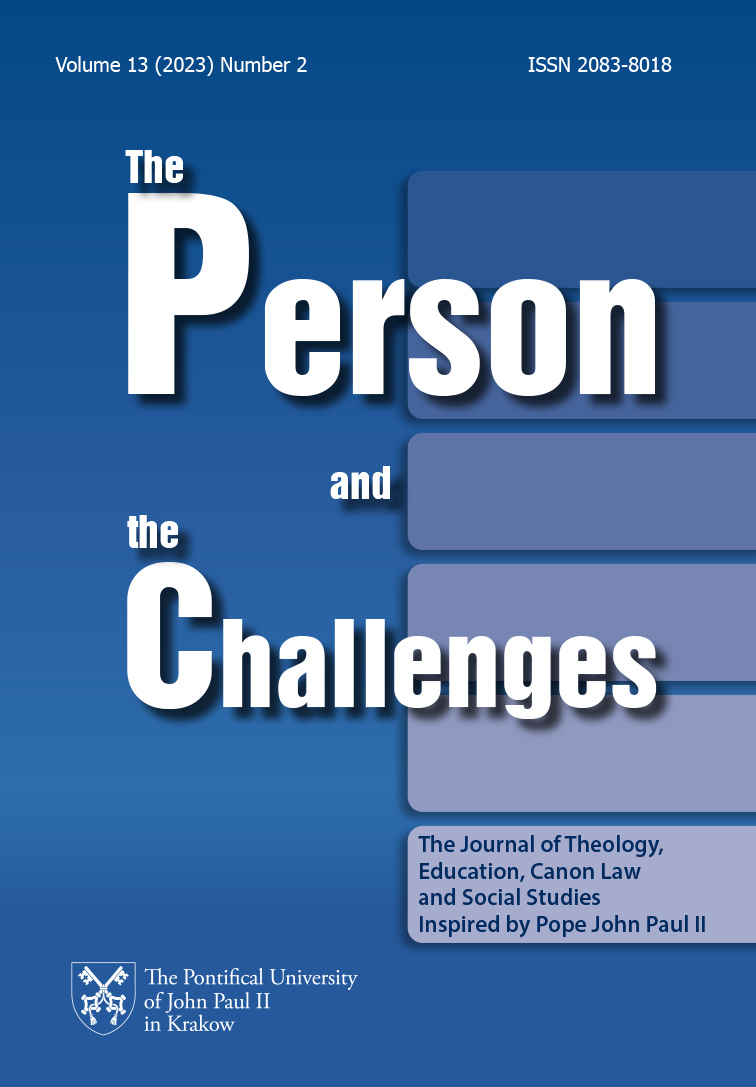The Instituted Ministries of Readers and Acolytes: A Kairos for the Synodality of the Liturgy
DOI:
https://doi.org/10.15633/pch.13213Słowa kluczowe:
ministries, institutions, readers, acolytes, catechists, men and women, synodality, Word of God, Body of ChristAbstrakt
Among the proposals for the implementation of the motu proprio Spiritus Domini and Antiquum Ministerium of Pope Francis (2021), opening the instituted ministries also to women and to lay people not on the way to ordination, the Note of the Italian Bishops’ Conference of June 2022, is certainly one of the most relevant with respect to the discernment, formation and conditions of access of candidates. By receiving a sacramental from the bishop in a community liturgy, for a perennial ministry at the service of the Word of God, the care of the body of Christ in the Eucharist and in the sick, as well as for Christian initiation and small base communities, the instituted ministers can contribute to the synodal revitalization of the ecclesial communion. Decreed ad experimentum for three years, the Italian document can inspire other Bishops’ Conferences around the world.
Bibliografia
Amherdt F.-X., L’animation biblique de la pastorale. 120 propositions pratiques, coll. « Pédagogie pastorale » (2017), n. 12, Namur, Lumen Vitae.
Benedict XVI, Verbum Domini, Post-Synodal Apostolic Exhortation on the Word of God in the Life and Mission of the Church, Rom 2010.
Congregation for Divine Worship and the Discipline of the Sacraments, Letter from the Prefect of the Congregation, Archbishop Arthur Roche, to the Presidents of the Bishops’ Conferences, on the occasion of the publication of the Editio typica of the Rite of Institution of Catechists, Rom 3 December 2021.
Consiglio permanente della Conferenza episcopale italiana, Nota sui ministeri instituti del lettore, dell’accolito e del catechista, http://www.settimananews.it/ministeri-carismi/ministeri-istituiti-lettore-accolito-catechista/ (16.07.2022).
Francis, Antiquum Ministerium, Apostolic Letter in the Form of a Motu Proprio establishing the Ministry of Catechist, Rom 2021.
Francis, Evangelii Gaudium, Apostolic Exhortation on the Proclamation of the Gospel in Today’s World, Rom 2013.
Francis, Letter to the Prefect of the Congregation for the Doctrine of the Faith on the Access of Women to the Ministries of the Lectorate and Acolyte (Cardinal Luis F. Ladaria), Rom 10 January 2021.
Francis, Querida Amazonia, Post-Synodal Apostolic Exhortation, Rom 2020.
Francis, Spiritus Domini, Apostolic Letter in the Form of a Motu Proprio on the Modification of Canon 230 § 1 of the Code of Canon Law Concerning the Access of Women to the Instituted Ministry of the Lectorate and Acolyte, Rom 10 January 2021.
John Paul II, Christifideles Laici, Post-Synodal Apostolic Exhortation on the Vocation and Mission of the Laity in the Church and in the World, Rom 1988.
Paul VI, Ministeria Quaedam, Apostolic Letter in the Form of a Motu Proprio reforming the Discipline of Tonsure, Minor Orders and the Subdiaconate in the Latin Church, “La Documentation catholique” 69 (1972), pp. 852–854.
Vatican II, Apostolicam Actuositatem, Decree on the Apostolate of the Laity, Rom 1965.
Vatican II, Lumen Gentium, Dogmatic Constitution on the Church, Rom 1964.
Pobrania
Opublikowane
Numer
Dział
Licencja

Utwór dostępny jest na licencji Creative Commons Uznanie autorstwa 4.0 Międzynarodowe.
Autorzy publikujący w czasopiśmie udzielają jego wydawcy zgody o następującej treści:
- Autor zachowuje autorskie prawa majątkowe do utworu, a jednocześnie udziela wydawcy czasopisma zgody na jego pierwszą publikację w wersji drukowanej i wersji online na licencji Creative Commons Uznanie autorstwa 4.0 Międzynarodowe oraz zgody na wykonywanie opracowań, w tym przekładów.
- Autor ma możliwość udzielania zgody niewyłącznej na opublikowanie utworu w wersji, która ukazała się w czasopiśmie (np. zamieszczenia go w repozytorium instytucjonalnym lub opublikowania w książce), wraz z informacją o jego pierwszej publikacji w czasopiśmie.
- Autor może umieścić swój utwór online (np. w repozytorium instytucjonalnym lub na swojej stronie internetowej) jeszcze przed zgłoszeniem utworu do czasopisma.

